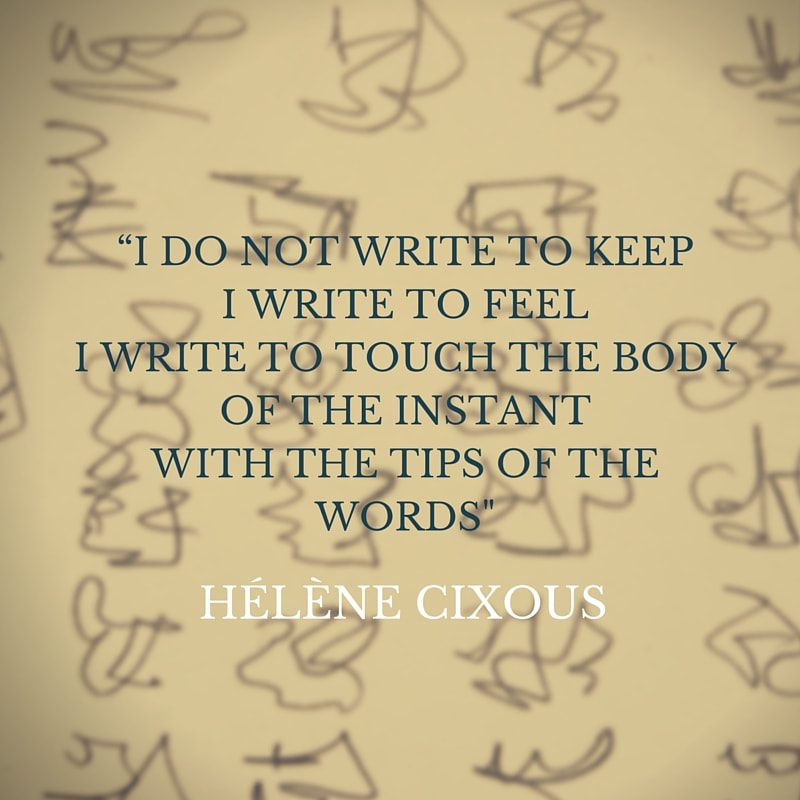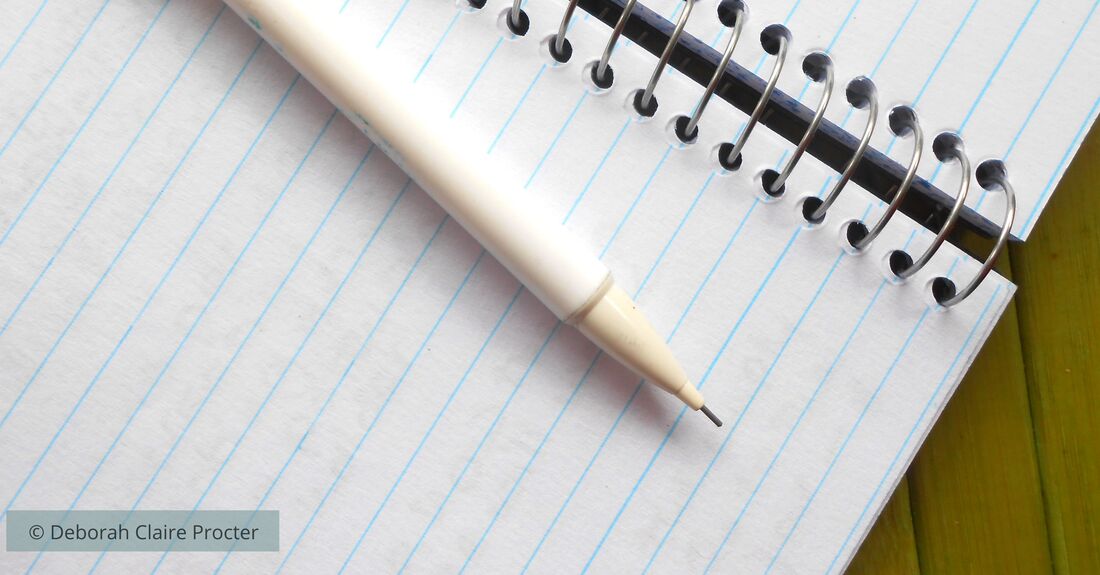I do not write to keep. I write to feel. I write to touch the body of the instant with the tips of the words. Hélène Cixous I love this quote and it explains to me why I need to have so many journals and notebooks around me! It reminds me of the distinction I learnt whilst studying drama at Exeter University which was heavily influenced by studio based practice and ensemble techniques, and where we were taught to constantly ask “Why theatre?” - in other words what does it do that another art form does not. Therefore, why do we say “playwright” and not “play-write”?  It is as if a playwright (distinct from a play-write), is someone developing their work in a process that is as much a physical process (like a wheel-wright) as an intellectual one. These are questions that have led my continuous artistic search to the borders of different art forms (dance theatre, physical theatre, performance art, martial arts in relation to performance etc) including to most recently an exploration in the arena of opera and experimental music in collaborations with Argentinean composer Oscar Edelstein as both a vocalist and video maker. Edelstein's concept of "Acoustic Theatre" raises the question of sound in space. It is question that was explored in the early acoustic experiments of the cathedral builders and Venetian masters (think whispering galleries and cathedrals constructed to be apt for choirs), up to references of the to the 3D space of German composer Karlheinz Stockhausen whose piece "Gruppen" requiring three conductors and three orchestras was recently performed in the Turbine Gallery at Tate Modern by London Symphony Orchestra directed by Simon Rattle), passing through Gustav Mahler, Richard Wagner, Claude Debussy, Arnold Schönberg, Geörgy Ligetti and Luigi Nono. With Acoustic Theatre, Edelstein is collaborating with physicists in Argentina to create a new kind of space for the experiencing of sound. He is working in depth with Manuel Eguía (Physicist / Acoustic Researcher) who is an Associate Professor at the Universidad Nacional de Quilmes in Buenos Aires and a member of CONICET (National Science Council) whose background is in Complex Systems, Nonlinear Dynamics and Theoretical Neuroscience. Together they are working with Sonic Crystals in an novel approach to sound in space. There is a long history of composers working in an interdisciplinary contexts that border with art, architecture, theatre and dance. Equally, in recent years artists have taken up this idea of sound in space and begun experimenting with the borders of sound. So for me Hélène Cixous - professor, French feminist writer, poet, playwright, philosopher, literary critic and rhetorician - captures that implausible aspect of the process of putting into words, and the need to physicalise the out of reach. Her gift is to remind us of deeper parts of ourselves as she eludes to that special finding of what is not there - that just because. N.B. Cixous is best known for her article '' The Laugh of the Medusa.'' Copyright © Deborah Claire Procter 2018 Clear Insight Productions, All rights reserved.
0 Comments
Leave a Reply. |
Author
THEMES
All
NEWSLETTER🔒We will not share your details with others | Ni fyddwn yn rhannu eich manylion gydag eraill. PRIVACY POLICY: Your privacy is important to us, and we are committed to protecting your personal information. If you sign in we use your name and email to send you periodic emails, including email newsletters and occasional business announcements and updates. Your information will never be shared or sold to a 3rd party. If at any time you would like to unsubscribe from receiving future emails it is easy to do so.
Archives
July 2022
|


 RSS Feed
RSS Feed